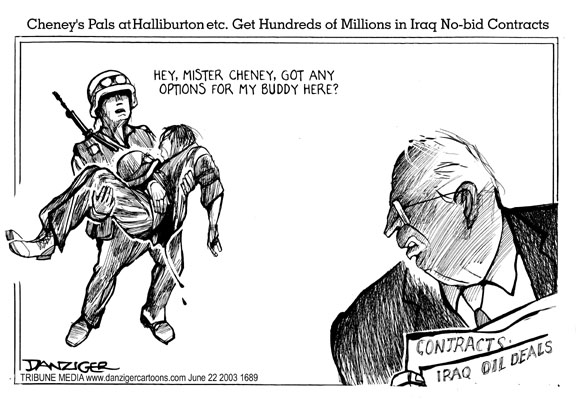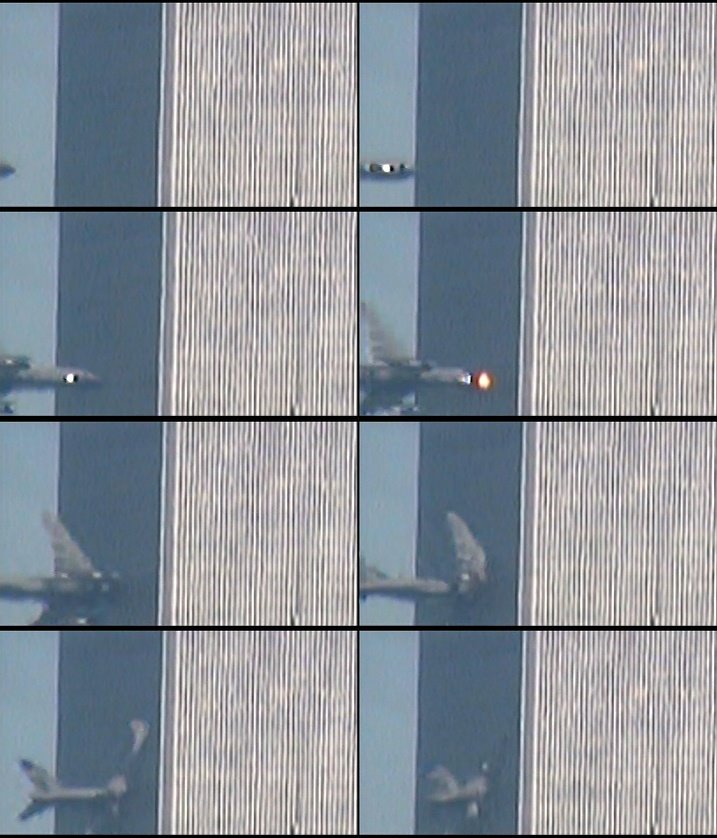USA world war III -- bases in Bulgaria
by Elitsa Savova -- Sofia Echo - 2007-01-03
US military base might be set up near the village of Chubra in the region
of Bourgas, Chubra mayor Georgi Kendov said.
The municipality was hoping that establishing the base would lead to the
modernisation of infrastructure in the region, Dnevnik daily said.
Kendov said that the money to be earned from the base could be used for a
polyclinic and daily emergency centre with ambulances.
NATO asked if the former buildings of a tank brigade in the town of Aitos
could be turned into a reserve storage base. NATO planned to store here
the equipment for one or two battalions, which would be based in the
military bases of Novo Selo and Bezmer.
The US investment in the municipalities where military bases would be set
up, would be nearly $200 million, Dnevnik said.
In late December 2007, at a public discussion, experts explained that the
bases would remain Bulgarian, under Bulgarian flag and command. The
villages near the bases would benefit from infrastructure development. The
US planned charity for the social institutions in the region of the bases,
Dnevnik said.
Sungulare mayor Georgi Kenov said that the bases were a possible way to
solve some of the problems in the municipality, including unemployment.


George Bush - US elites need war!! They care about bloodbaths only in terms of PR value. If it is negative PR they tend to avoid it. False Flag terror attacks (i.e. covert remote-controlled bombs blamed on "suicide bombers" are an international favourite amongst military and intelligence "services".
flying limbs -- severed arm of a US Soldier?

flying limbs -- severed arm of a US Soldier?
The United States should not only get out quickly, it ought to be compelled or shamed into paying huge sums to a free Iraq to compensate for the enormous damage that resulted from its commission of the "supreme crime" and murderous occupation.

1. On Reconstruction
Anthony DiMaggio: The "humanitarian reconstruction" of Iraq has been acknowledged to a large degree as a failure in the corporate press. It's interesting, though, to see the reasons given for why: the resistance is hampering reconstruction, there wasn't perfect foresight by the Bush administration in the reconstruction coordination planning process, the excessive "rapid personnel shifts" of those Americans involved in rebuilding, American money has "necessarily" gone to "pacification" instead of rebuilding, etc. What seems to be systematically omitted here is any real responsibility placed on the Bush Administration for its failure to make humanitarian reconstruction a high priority.
Chomsky: The excuses also overlook the fact that the insurgency was created by the brutality of the invasion and occupation -- which is, in fact, one of the most astonishing failures in military history. The Nazis had less trouble in occupied Europe, and the Russians held their satellites for decades with far less difficulty. It is difficult to think of an analog. A few months after the invasion, I met a highly experienced senior physician with one of the leading relief organizations, who has served in some of the worst parts of the world. He had just returned briefly from Baghdad, where he was trying to reestablish medical facilities, but was unable to because of the incompetence of the CPA. He told me he had never seen such a combination of "arrogance, ignorance, and incompetence," referring to the Pentagon civilians in charge. In fact, it was monumental. They even failed to guard the WMD sites that had been under UN supervision, so that they were systematically looted, handing over to someone -- probably jihadis --high-precision equipment suitable for producing missiles and nuclear weapons, dangerous bio-toxins, etc., which had been provided to their friend Saddam by the US, UK and others. The ironies are almost indescribable.
Another fact overlooked, though it is finally beginning to leak, is the immense corruption under the CPA, beside which anything attributed to the UN pales in insignificance. Plenty of information has been readily available, but only tidbits were reported here.
One can go on. But the major and crucial point overlooked is the judgment of Nuremberg, declaring that aggression is "the supreme international crime differing only from other war crimes in that it contains within itself the accumulated evil of the whole." All of the "accumulated evil." Also overlooked are the stern words of the US Chief Counsel Justice Jackson: "If certain acts of violation of treaties are crimes, they are crimes whether the United States does them or whether Germany does them, and we are not prepared to lay down a rule of criminal conduct against others which we would not be willing to have invoked against us... We must never forget that the record on which we judge these defendants is the record on which history will judge us tomorrow. To pass these defendants a poisoned chalice is to put it to our own lips as well." Until at least this is recognized, all other discussion is merely footnotes, and shameful ones.
Herman: The U.S. specialty is destruction, not reconstruction, in accord with the U.S. elite's longstanding giving of primacy to military means, and the use of force in dealing with target states. We save them by destroying them, and then move on to the next creative project. This is how it works even when we succeed in bringing into power an amenable client regime, as in Nicaragua after the ouster of the Sandinistas or Afghanistan after the removal and dispersal of the Taliban. There have been explicit leadership statements to the effect that "nation-building" is not our business-we specialize in dismantlement, not construction.
In Iraq, there has been a lot of construction, but not much reconstruction. What have been constructed are massive U.S. military bases and facilities, repairs of oil extraction facilities, and protective walls in and around the Green Zone, which is essentially an occupied fortress within Baghdad. Not much has been done for Iraqi benefit. There are two incentives for reconstruction in Iraq: one is to serve U.S. companies, obviously mainly donor companies like Halliburton and Bechtel, who want the business, especially under conditions where looting is relatively easy given the difficult conditions and fiscal confusion. There is also an incentive to reconstruct in order to help sell the client government to the Iraqi people. The first incentive has been effective, with the donor companies getting lots of business with lots of overpayment, but most of their work has been in base, oil industry, and Green Zone construction, not reconstruction helpful to Iraqis. The second incentive might have had some potency except for the extreme difficulties of working in the highly insecure environment of occupied Iraq, plus the fact that Bush priorities and the unexpectedly high costs of the occupation have made this form of help to the client government too expensive; so helping the client government has been reduced to the U.S. specialty-pacification by violence.

2. On Civil War in Iraq
DiMaggio: A common argument made against de-escalation and withdrawal is that Iraq would fall into civil war. Should this argument be taken seriously by the American public? Many have argued that the U.S. is already promoting civil war in Iraq by training Iraqi security forces to fight other Iraqis (the resistance). In addition, others have pointed out that U.S. occupation is hardly going to change the dynamics of long-standing sectarian and cultural divides between Iraq's various groups (Shia, Kurds, Sunni); in fact it may make them worse by exacerbating relations between Sunni insurgents/resistance and the Shia and Kurds. Is there any legitimacy to the argument that the U.S. should prevent civil war?
Chomsky: Aggressors have no rights, only responsibility. One is to provide massive reparations (not aid). Another is to withdraw forthwith, unless there is very strong evidence that the population wants them to stay. To say that such evidence is lacking is a serious understatement. The most recent poll (August 2005), undertaken by the British Ministry of Defense and leaked to the right-wing British press, reveals that over 80% of the population want the US-UK forces out, that 1% think they increase security, and that 45% approve of attacks on US-UK forces. If this means all Iraqis, as reported, it must be that opposition to the occupiers is far higher in Arab Iraq, where they are actually deployed and engaged. This is not too surprising in the light of earlier information that has been released.
Herman: The Bush war has already started a civil war as part of the evolving occupation strategy. The character of the occupation, with its murderous use of firepower and harsh treatment of the populace, has steadily enlarged and consolidated a resistance. Having failed to get a puppet effectively installed without even nominal democratic forms, the Bush war managers opted for a tacit alliance with the Shiites and Kurds, who would be given nominal and possibly a modicum of real power via an electoral process, but with much of the legal and power arrangements of the occupation left intact and with the United States staying on to protect the new quasi-rulers from the Sunni-based insurgency. This provoked and institutionalized a civil war, with the occupation maintained as the military arm of one side. Thus the idea that the United States should stay on to avert a civil war is a laugher-it produced the resistance and then moved on to a tacit alliance with the Shiites and Kurds to fight the Sunnis on behalf of the latter two groups while trying to train and arm these to be able to pacify the Sunnis on their own, which is to say in a civil war with the foreign military's direct assistance and participation.
3. On U.S. Withdrawal
DiMaggio: Most Americans seem to be considering withdrawal within the next year or so. Do you think there is any serious role to be played by the U.N. or Arab League in ensuring a power-vacuum does not replace the American occupation, should the U.S. decide to leave? In other words, are these two organizations necessary for promoting security in Iraq? From what polling has revealed, the people of Iraq seem to prefer that Iraqi security forces should take over stabilizing and policing the country, rather than the U.S. or some other power. Is this realistic at all? Would bringing Arab League forces in not just subject Iraq to outside political pressures from neighboring regimes? And does the U.N. really have any credibility there after nearly 15 years of murderous sanctions?
Chomsky: In Western propaganda, the murderous sanctions are called "UN sanctions," which is technically accurate, but a cowardly evasion. It has always been perfectly obvious that they were initiated and conducted under US initiative, with the "spear carrier for Pax Americana" -- as Blair's Britain is described in Britain's leading journal of international affairs -- trailing politely behind. And the cruel and savage character of the sanctions (as well as the illegal oil shipments) trace right back to Washington, overwhelmingly. By April 2003, a large majority of Americans felt that the UN, not the US, should take responsibility for Iraq -- approximately the position that Spanish voters approved a year later, but in the US, democracy has deteriorated to the point that public opinion has little influence on policy, on a very wide range of issues. The discussion, in any event, is idle. It is for Iraqis to make these decisions. The invaders may have whatever uninformed subjective judgments they like, but they are of only marginal interest, no matter who the invaders are.
Herman: With a U.S. withdrawal there would be a strong incentive for the three sub-national groups to come to some kind of accommodation, without any outside assistance. The U.S. withdrawal would cut out a major part of the rationale for an insurgency, so accommodation would become possible. The very assurance of a specific and near-term U.S. timed exit would probably induce serious indigenous attempts to produce reconciliation and end a struggle that is so costly to all sides, but mostly to the Sunnis and Shiites.
Other Arab states did perform a useful mediation service in Lebanon in earlier years, so their utility in this service is not out of the question. The UN is pretty thoroughly discredited and probably has no useful role to play here. But the possibility of purely indigenous accommodation in the absence of the aggressor-occupier from abroad should not be discounted. The United States has wrecked the country and continues to do further wrecking in its pacification operations, so that ending its operations there would be a gigantic plus. It is not likely that the situation would be as bad or worse with the United States and its "coalition of the bribed" out of Iraq, and there is an excellent chance that it would be much better. The Iraqis surely ought to be given that chance of freedom from an aggression-occupation following their long years of non-freedom under Saddam Hussein.
The United States should not only get out quickly, it ought to be compelled or shamed into paying huge sums to a free Iraq to compensate for the enormous damage that resulted from its commission of the "supreme crime" and murderous occupation.

























































 Earth's magnetic field:
Earth's magnetic field:
